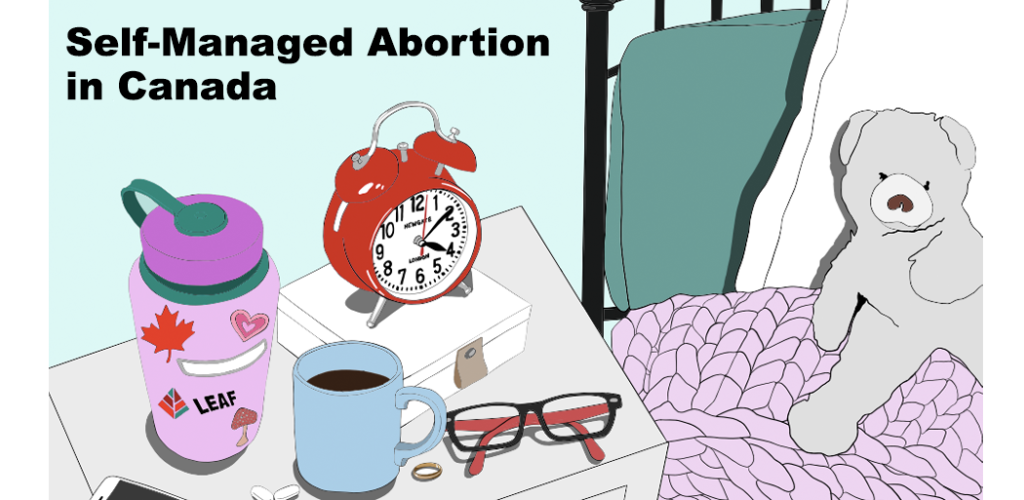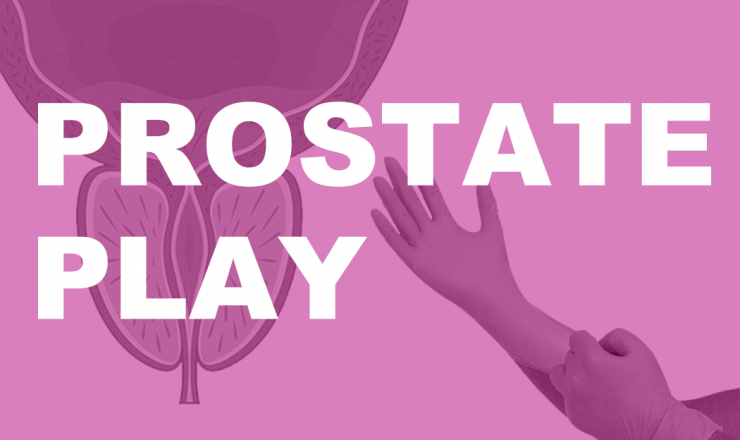

By Teen Health Source
LEAF (the Women’s Legal Education & Action Fund) have recently shared a new report on the status of self-managed abortion on Canada called “Self-Managed Abortion in Canada: A Status Report“.
Self-Managed Abortion (or SMA) is where a pregnant person takes steps to end a pregnancy outside of clinical/medical environments like hospitals or abortion clinics.
Written by Julianne Stevenson and Jennifer Taylor, and published in partnership with LEAF, this report looks at the basics of SMA in Canada, covering things like how effective it is, safety concerns, legal consideration, as well as benefits. We’ve pulled some highlights from the report to give people a quick intro, but check out leaf.ca or the link above to read the full report.
Note: The report is not intended as a “how-to” guide on self-managed abortion, nor is it intended to constitute health or medical advice.
SMA is typically a type of medical abortion, where the pregnant person first takes mifepristone (to end the pregnancy) and then 24-48 hours late take misoprostol (to expel any pregnancy tissue). This is the same as what happens when doing a medical abortion with a health care provider, except with SMA it involves the pregnant person getting and taking the pills on their own. Doing this type of SMA with support from an abortion counsellor (who may or may not have clinical training) can be as effective as doing a medical abortion with a clinician.
| Using Herbal Products |
|
Even though abortion is legal in Canada, here are some reasons why you might choose SMA:
It is important to recognize that many people (including Indigenous people, Black people, as well as trans and non-binary people) have experienced discrimination from the health care system, and so the choice to pursue SMA can feel less stressful than having to interact with clinical spaces.
SMA might not be an option for you depending on your access to a safe living space that you can control. You may not be able to manage an at-home abortion if you are incarcerated, a migrant worker, unhoused, experiencing violence in your home, or living in other precarious situations.
Navigating SMA also requires that you:
In many cases, internet access is also really important for getting information and supports related to the SMA process.
It is currently illegal in Canada to obtain abortion pills without a prescription from a clinician. While you may find it possible to order abortion pills online from other countries, importing prescription medications is also a criminal offence. Engaging in either of these activities, whether for yourself or someone else, could open you up to legal risks, including fines or even incarceration.
There are no Canadian websites that can legally sell abortion pills to anyone without a prescription.
It is generally not recommended to order from unlicensed online pharmacies, due to concerns about the legitimacy of their medications, possible contamination, or online scams to get your personal and financial information.
Other studies report that, in most cases, ordering from reputable websites will result in receiving the drugs needed to perform SMA, however sometimes with less than the amount labelled or expected at the time of order. It is also important to factor in shipping delays, which can impact the effectiveness of the pills after a certain number of weeks.
Even though SMA is not currently available in Canada, there are a number of initiatives in the works to hopefully change that in the future.
Over the past couple of years there has been a growth in telemedicine supports, with providers prescribing the abortion pill via text, phone, or video call appointments, and either sending the prescription to your nearest clinic or couriering you the pills.
There are also people pushing for changes in health care policies, which would include things like:
There is also a growing number of people in the Abortion Doula community. Abortion Doulas are people who provide different kinds of supports to people having abortions, including things like transportation, places to stay, raising money for travel funds, and emotional support. Some places providing these supports include:
While the term “Self-Managed Abortion” does make it sound you like are alone in the process, there often is a wider community out there to support you before, during, and after the process, whether they’re friends, family, health care professionals, or orgs like those listed above.
If you have questions about this topic, feel free to contact one of our peer educators. [Link]
Last Updated: April 2022

This series explores a small portion of the great wide world of Virtual Sex! Our first instalment covers questions like: What is it? Why do people do it? How do people do it? Is it even “doing it”? And more?

Lately we’ve been getting some question about Prostate Play! What is it? Who does it? What even is a prostate? Check out this post for answers to these questions and more!

Did you know that Teen Health Source has been around for 25 years! To help celebrate our 25th Anniversary, we’re checking in with some of our previous volunteers. Today we’re hearing from Brhan!